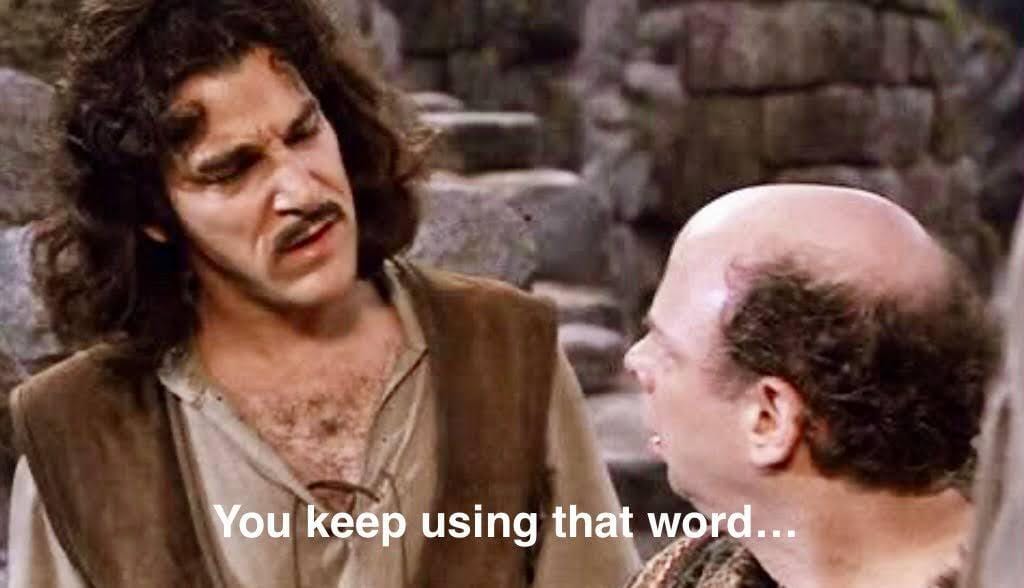- The Breakdown
- Posts
- 🟪 The semantics of secrecy
🟪 The semantics of secrecy
Private vs. anonymous crypto



0xResearch returns to its analyst roots. Daily alpha and insights now coming directly from our research team. Investment research, market commentary, and unfiltered data-driven takes in your inbox.
The semantics of secrecy: Private vs. anonymous crypto
Zcash is having a moment.
The native token of the blockchain that allows for “shielded,” untraceable transactions is up 190% in just the past two weeks.
Exactly why a coin launched way back in 2016 would catch on like that right now is hard to pinpoint, but it seems to be an expression of crypto’s renewed enthusiasm for “privacy.”
Inspired by the original cypherpunks, this has always been a big part of crypto’s raison d'être: a way to transact outside of the government-surveilled banking system.
Far from a revolution, however, crypto-enabled privacy is often framed as a return to historic norms.
“It’s simply that we should have privacy in our digital communications and activities, of a similar type that we had for thousands of years,” Vitalik recently explained.
Hester Peirce has similarly argued that "we should take concrete steps to protect people’s ability not only to communicate privately, but to transfer value privately, as they could have done with physical coins in the days in which the Fourth Amendment was crafted."
Privacy was easier to come by when the Fourth Amendment first protected Americans against “unreasonable search and seizure” — coins and letters are harder to trace than bank transfers and emails.
Bitcoin once seemed to have solved the money part, but advances in onchain analytics have made it increasingly easy to link its pseudonymous addresses to real-world identities.
Zcash, however, fixes this by adding zero-knowledge encryption to the original Bitcoin code base.
The stated purpose of Zcash is to “protect your right to privacy,” which is why it is commonly referred to as a “privacy coin.”
That is a laudable goal, of course, and also a good choice of words: Who could object to keeping things private?
I’d argue, however, that it’s not a correct choice of words, because Zcash provides something far more cypherpunk than privacy: anonymity.
That’s not just semantics.
Privacy is what you get with bank transactions: hidden from the public, but visible to law enforcement.
Anonymity is what you get with cash transactions: hidden from everyone.
With disclosure to law enforcement or anyone else entirely optional, Zcash seems to offer not just privacy, but anonymity, too.
Will law enforcement be happy with that?
In a letter to the Senate Banking Committee, Josh Swihart, CEO of the company that created Zcash, says “privacy coins can be compliant with regulations.”
“Zcash,” he argues, “allows users to disclose transaction details selectively such that auditable privacy is possible.”
But that presumably makes unauditable anonymity possible as well.
Swihart believes that should be acceptable to the lawmakers he’s addressing, reasoning that “the existence of privacy features does not preclude following the law.”
Which is true — but neither does walking into a bank wearing a balaclava.
Banks don’t appreciate face-covering balaclavas in their branches because while they do offer privacy, they do not offer anonymity.
It’s not just Zcash that conflates the two terms; pretty much everyone does.
Tornado Cash, commonly described as “privacy preserving,” is actually “anonymity granting.”
The Ethereum Cypherpunk Manifesto advocates “for the integration of privacy-preserving technologies” that will enable “users to transact, interact and authenticate with confidence and anonymity.”
But anything that offers anonymity is more than private.
Even a protocol called “the Secret Network" pitches itself as “privacy-preserving."
Privacy is not secrecy!
There’s a sense that because “privacy” is so uncontroversial, all these crypto solutions will be universally welcomed.
But few outside of crypto are in favor of absolute privacy (aka, anonymity).
Hester Peirce, for example, values crypto as a means of “putting some friction in place before government can get information from its citizens.”
But anonymity would stop the government from collecting any information at all.
Similarly, the White House has said that “American citizens and businesses should be able to own digital assets and use blockchain technologies for lawful purposes without fear of prosecution.”
But anonymity would also allow for the unlawful use of blockchain technology, also without fear of prosecution.
As crypto friendly as the current US government is, it does still want you to fear prosecution.
In April, for example, an FBI notice advised Americans to “avoid cryptocurrency money transmitting services that do not collect know your customer (KYC) information from customers.”
Zcash probably does not meet the legal definition of a “money transmitting service,” so I think its users can safely disregard that warning.
But it almost certainly exceeds the Fourth Amendment’s definition of a "reasonable expectation of privacy" — because it grants users an absolute one.
Optional compliance is not compliance.
It’s far more cypherpunk than that.

Brought to you by:
Katana was built by answering a core question: What if a chain contributed revenue back into the ecosystem to drive growth and yield?
We direct revenue back to DeFi participants for consistently higher yields.
Katana is pioneering concepts like Productive TVL (the portion of assets are actually doing work), Chain Owned Liquidity (permanent liquidity owned by Katana to maintain stability), and VaultBridge (putting bridged assets to work generating extra yield for active participants).


By Blockworks |

By Blockworks |


By Kunal Doshi and Boccaccio |

By Blockworks |

Stablecoins are having an institutional moment. How will that play out?
Leaders in the institutional world will hash it out live onstage at DAS London.
Get your tickets today with promo code: BREAKDOWNNL for £100 off.
📅 October 13-15 | London













